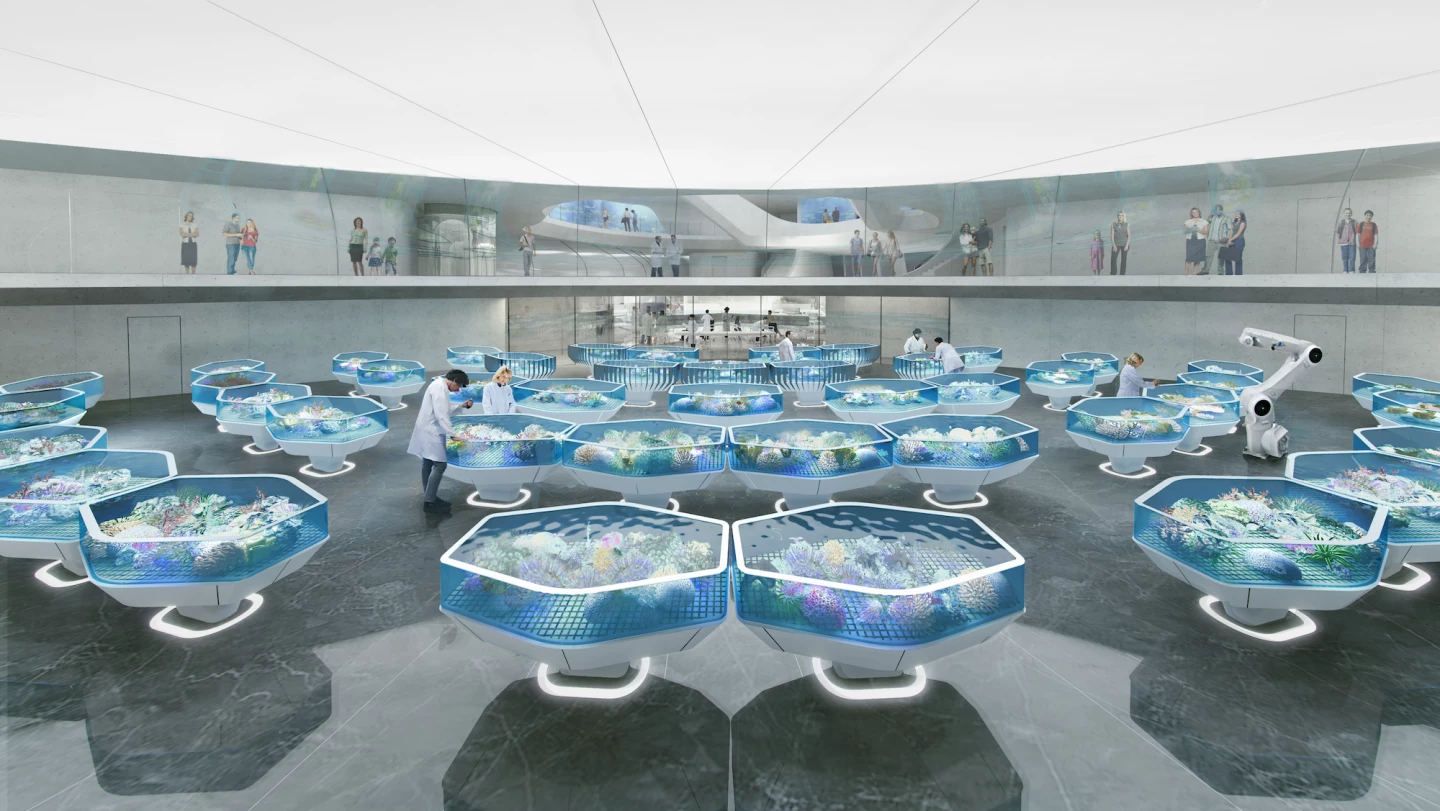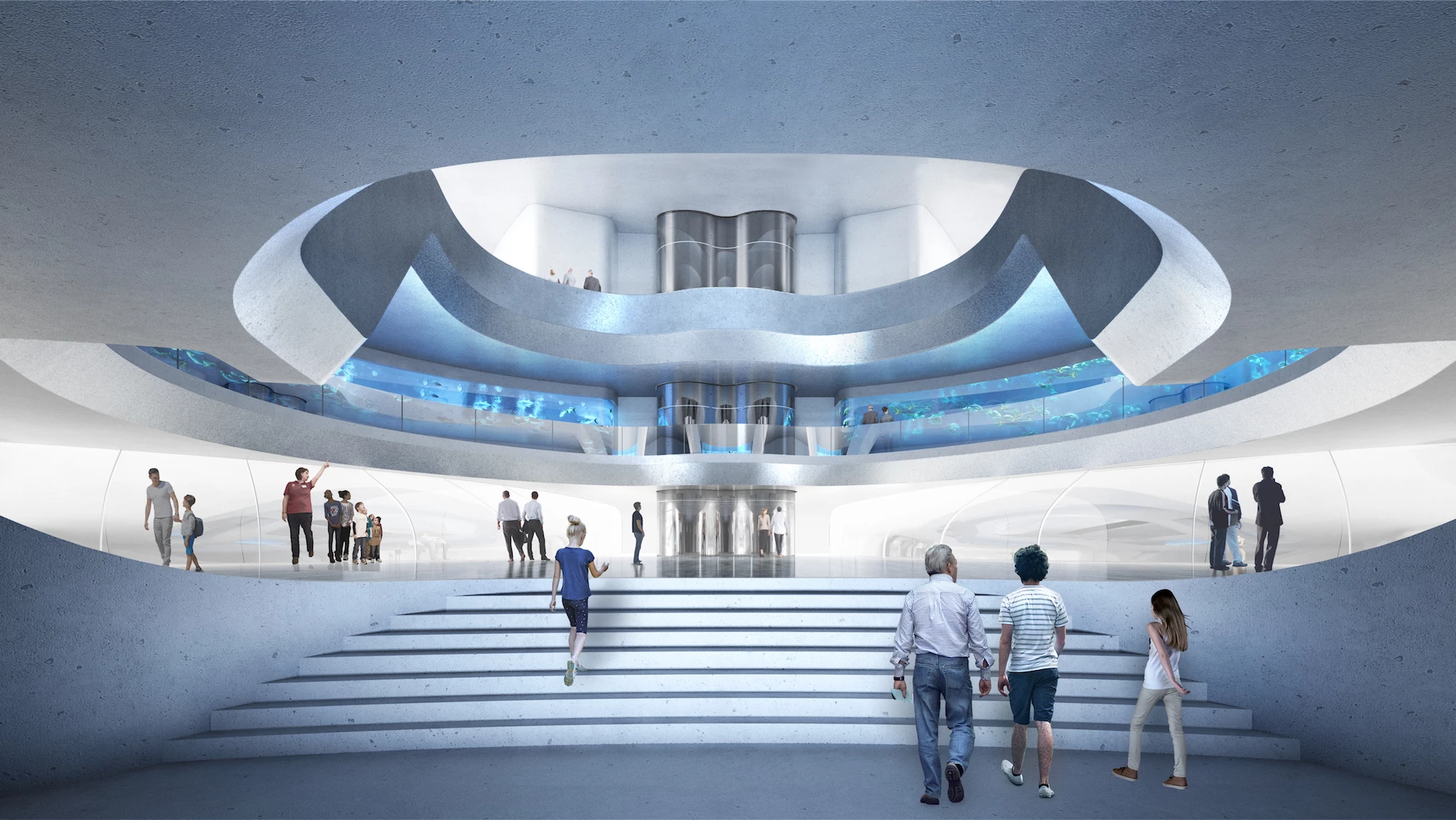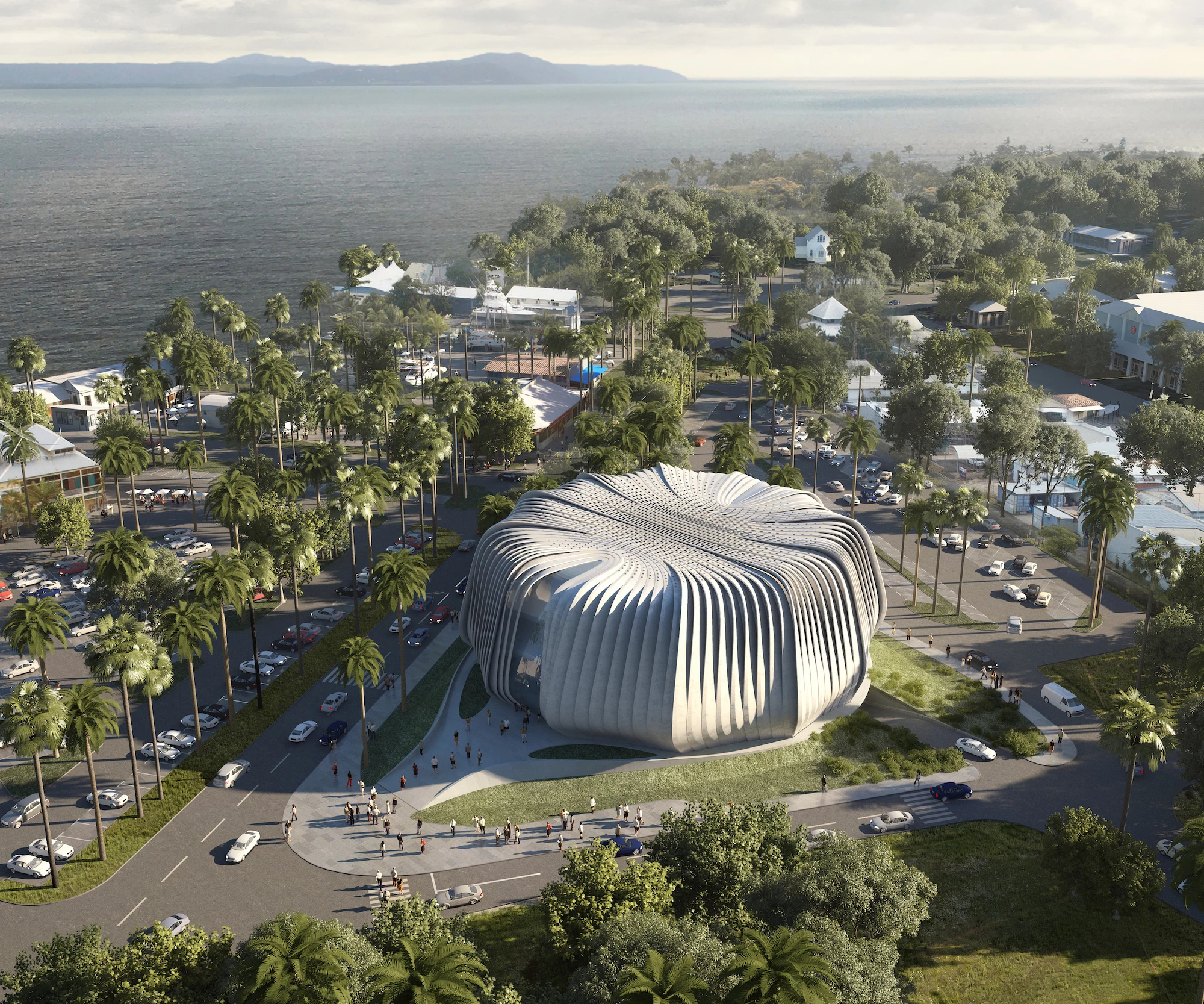The Great Barrier Reef isn't in the best of shape to say the least, so in an attempt to help secure the longterm future of its corals and other corals worldwide, Contreras Earl Architecture has unveiled what it calls the world's first dedicated coral conservation center. Assuming all goes ahead as planned, the building will boast energy-efficient features and will maintain over 800 species of scleractinia (aka hard corals).
The Living Coral Biobank is being created in collaboration with engineering experts Arup and Werner Sobek, and is slated for Port Douglas, North Queensland, Australia. The project is described as a "living ark" and was commissioned by the Great Barrier Reef Legacy, a non-profit organization set up to try and secure the long-term survival of corals from the Great Barrier Reef and other coral reefs worldwide. The idea is that it will store corals and keep them safe and ensure their biodiversity, a little like Norway's Global Seed Vault does for seeds.
The building's unusual sculpted form is inspired by coral itself and is designed to be resilient to severe weather and flooding. Its facade is envisioned as a series of undulating concrete fins and, as they progress upwards, the fins will gradually twist and unfurl, allowing natural light and ventilation of the upper levels while providing solar shading to the floors that lie below.
While the majority of the building's 6,830 sq m (roughly 73,500 sq ft) of interior floorspace will be dedicated to the preservation of corals, it will also host exhibition areas, a 200-person function space, an auditorium, classrooms, and advanced research and laboratory facilities.

"The Living Coral Biobank is the only project that can secure the living biodiversity of the world's coral species immediately," says Dr Dean Miller, Living Coral Biobank Project Director and Managing Director of the Great Barrier Reef Legacy. "To ensure this priceless living collection is held in perpetuity for generations to come we need the world's most advanced facility that also promises to use only renewable energy sources and function with optimum efficiency, while also creating an unforgettable visitor experience – and that's exactly what this design delivers!"
While it's early days yet, the building is slated to boast an impressive array of sustainability features that include external shading, high-performance glazing, a focus on natural ventilation and increasing daylight inside. It will feature a heat pump system that makes use of the nearby sea water for energy-efficient cooling, solar panels with on-site battery storage, and solar hot water panels. It will also have high levels of insulation and air-tightness, and feature a sensor network and real-time monitoring to ensure efficient energy use.
The Living Coral Biobank is still in the design stage at the moment, but is expected to be completed and in use by 2025.
Source: Contreras Earl Architecture






